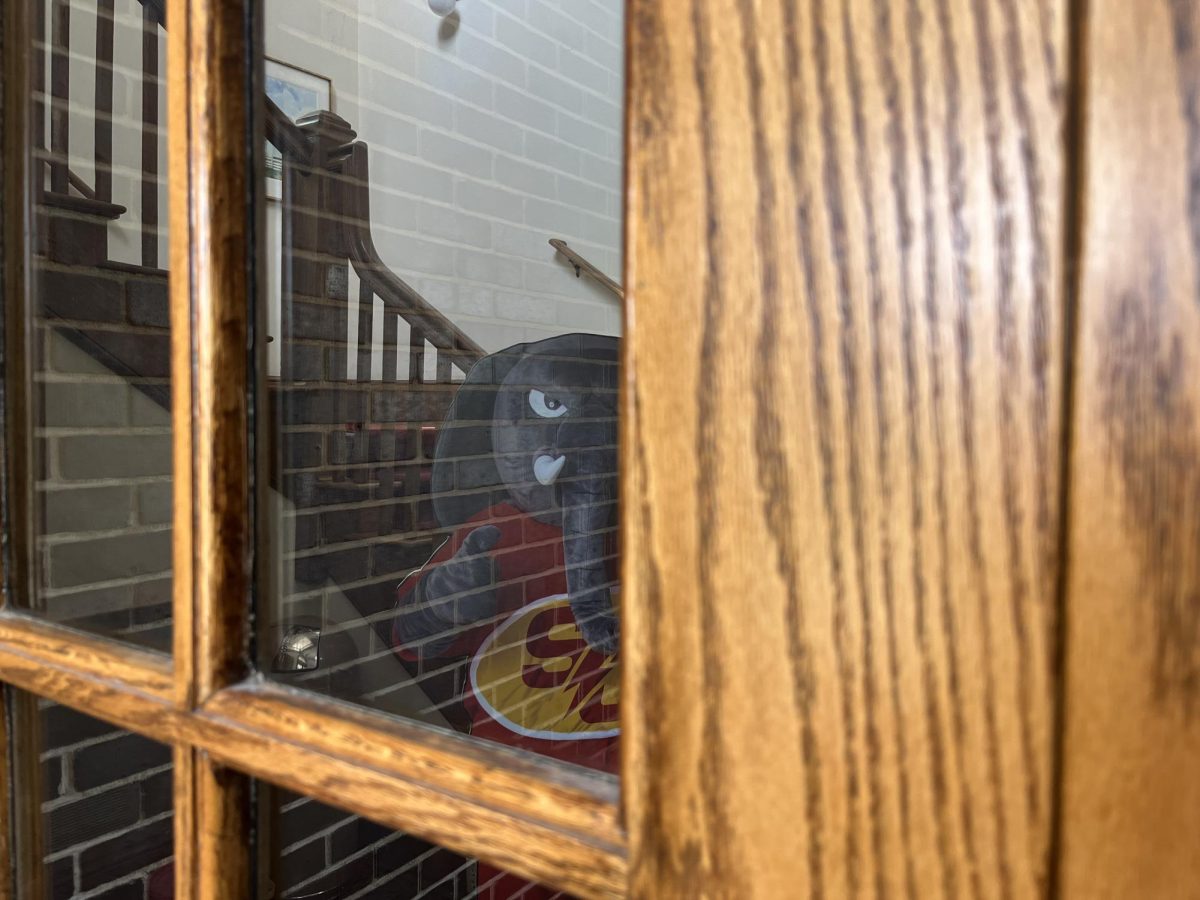Changes possible for May term
November 30, 2011
“margin-bottom: 12.0pt; text-align: left;” align=”left”>Low May
term enrollment may cause housing changes and reduce the number of
classes in the future.
“margin-bottom: 12.0pt; text-align: left;” align=”left”>Simpson
College Registrar Jody Ragan thinks that changes in housing,
activities and food services will be needed, but can’t determine
exactly what those changes may be.
“margin-bottom: 12.0pt; text-align: left;” align=”left”>There is a
chance that housing will make a change if enrollment is low.
Director of Residence Life Luke Behaunek said students may be
condensed if there are only a couple students living in one
facility, but no plans are certain yet.
“margin-bottom: 12.0pt; text-align: left;” align=”left”>“There’s
been some mention of contingency plans, say if for instance, in the
unlikely situation that there was only a handful of students in a
building, what we would do in that situation” Behaunek said.
“There’s been conversation, but there certainly hasn’t been any
definitive decisions been made on that topic yet.”
“margin-bottom: 12.0pt; text-align: left;” align=”left”>As they
stand now, May term courses do not have to fulfill requirements of
the Engaged Citizenship Curriculum or Cornerstone Curriculum
requirements, but that they may do so, Ragan said.
“margin-bottom: 12.0pt; text-align: left;” align=”left”>“May term
courses have always been offered based upon demand and we continue
to evaluate class offerings based on student interest and need,”
Ragan said.
“margin-bottom: 12.0pt; text-align: left;” align=”left”>However,
many courses are offered only every other year and may not be
available if the course professor is unavailable or unable to teach
during May term.
“margin-bottom: 12.0pt; text-align: left;” align=”left”>
International travel courses appear to be unaffected by the changes
in May term.
“margin-bottom: 12.0pt; text-align: left;” align=”left”>
International education coordinator Jay Wilkinson believes it’s
because travel courses are one way to fulfill a requirement.
“margin-bottom: 12.0pt; text-align: left;” align=”left”>“It’s true
that students aren’t required to take May term (every year), but I
think international travel courses have never been something
students (feel obligated to take),” Wilkinson said.
“margin-bottom: 12.0pt; text-align: left;” align=”left”>Originally
nine May term travel abroad courses were offered, but one was
eliminated due to a lack of response.
“margin-bottom: 12.0pt; text-align: left;” align=”left”>Similar to
Ragan’s expectations, Wilkinson was not surprised that one course
was cut.
“margin-bottom: 12.0pt; text-align: left;” align=”left”>
Often
“font-size: 11px;”> one to three courses may be cut
due to low enrollment. Much of this has to do with the popularity
of the course and how many students apply.
“margin-bottom: 12.0pt; text-align: left;” align=”left”>This is
something Wilkinson expected because two of the more popular May
term courses weren’t offered: a madrigal course and Professor John
Epperson’s political science trip to Great Britain and Ireland.
“margin-bottom: 12.0pt; text-align: left;” align=”left”>A madrigal
course typically means 30 to 40 more students will be signed up to
take that international travel course and Epperson’s class usually
has about the same number of students.
“margin-bottom: 12.0pt; text-align: left;” align=”left”>May term
this year has about 70 fewer students than last year partially
because these courses weren’t offered and partially because of the
“uncertain economic situation” Wilkinson said.
“margin-bottom: 12.0pt; text-align: left;” align=”left”>This isn’t
something Wilkinson is concerned about. He prefers to compare
equivalent years, which would be 2010, and there are about 20 more
students enrolled in international travel courses this coming May
term than there were in 2010.
“margin-bottom: 12.0pt; text-align: left;” align=”left”>“There were
about 60 more students participating in international travel
courses last year that the current count for 2012,” Wilkinson
said.
“margin-bottom: 12.0pt; text-align: left;” align=”left”>Most agree
the economy has a great influence of whether students choose to
participate in May term, especially in a travel course.
“margin-bottom: 12.0pt; text-align: left;” align=”left”>The Media
in D.C. travel course was unable to have two professors participate
and left Brian Steffen teaching JFK lectures on campus.
“margin-bottom: 12.0pt; text-align: left;” align=”left”>There are
fewer students taking the study abroad trip, but Lucht hopes each
student will be able to gain a more intimate look at how the media
conducts itself in Washington D.C.
“margin-bottom: 12.0pt; text-align: left;” align=”left”>“I want
them to have a chance to be exposed to some professional
environments, get a behind the scenes look at how journalism is
produced in the nation’s capital and I want them to have the chance
to ask questions about how that journalism is produced,” Lucht
said.
“margin-bottom: 12.0pt; text-align: left;” align=”left”>Two
professors for each study abroad trip is ideal, but like other
professors in this situation, Lucht and Steffen already had a plan
for who would be in charge of the trip if enrollment was low.
“margin-bottom: 12.0pt; text-align: left;” align=”left”>
“The fees that students
pay cover the travel costs for instructors,” Wilkinson said. “For
some courses with relatively low enrollments, each student in the
course would be forced to pay too much if two professors
participated in the course,”
“margin-bottom: 12.0pt; text-align: left;” align=”left”>Many
courses are available until mid-January. These courses and others
can be found in the May term section of the study abroad
website.





